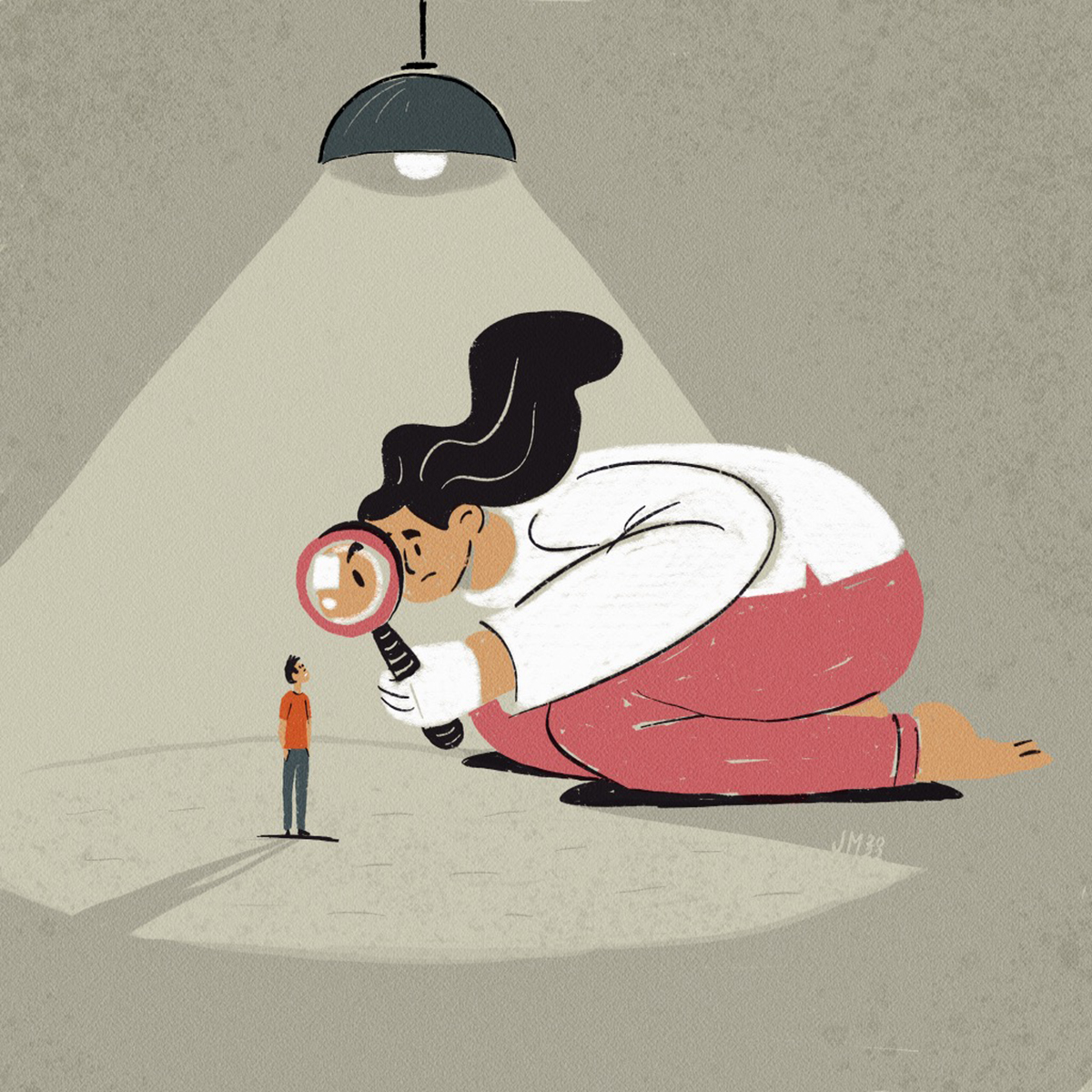Plagued by senseless doubts about your partner? It might be Relationship OCD.
Occasional doubts are common. Doubts that mess up a healthy relationship may indicate a problem.
Most of us feel uncertain about our partners from time to time. We might wonder, “Is he good enough?” or “Is she the one?” Unless there really is a problem, these questions are fleeting and don’t cause much distress.
However, if you struggle with underlying OCD (obsessive-compulsive disorder) symptoms, your concerns might be loud and constant. You might obsess over whether you’re happy with your partner, relentlessly checking whether you really love them or whether you’re right for each other.
Left untreated, your worries and doubts may damage or destroy your relationship. Read on to learn about Relationship OCD and how to keep it from devastating your love life.

What is Relationship OCD?
Relationship OCD (ROCD) is a type of OCD in which you experience intrusive thoughts or compulsive behaviors related to your romantic relationship. You worry that the relationship won’t last or that you aren’t right for each other to the point that you can’t stop thinking about it or stop doing things to reassure yourself. Even though you feel happy in your relationship, you can’t shake senseless doubts and worries.
If you have Relationship OCD, you might continually worry that your partner doesn’t love you or that you should leave your partner. You might fixate on something about the way they look or act and question whether you can truly love someone with that attribute. You might do certain things over and over to gain reassurance that your fears are unfounded.
Your worries and doubts may confuse and disturb you. You might ask yourself, “If this relationship is meant to be, why am I having these thoughts?” or “I know I love her, so why do I keep thinking I should leave?” You may feel guilty or ashamed of your concerns.
What are the symptoms of Relationship OCD?
Signs and symptoms of ROCD may include:
- Intrusive thoughts about your partner’s flaws
- Persistent concern that you could find someone better
- Incessant worry that your partner doesn’t really love you
- Excessive concern about your partner’s well-being or happiness
- Seeking frequent reassurance from your partner
- Feeling distracted by intrusive thoughts about your relationship or partner
ROCD may manifest as one of the following types:
- Primarily relationship-focused concerns, such as: Does my partner love me? Do I really love my partner?
- Primarily partner-focused concerns, such as: Is she smart enough? Are his eyes too close together? Will my friends think she’s weird?
- A combination of both relationship-focused and partner-focused concerns
How does Relationship OCD affect relationships?
ROCD causes distress in both you and your partner. You might seek constant reassurance from them, which can be frustrating and confusing, especially if they don’t understand the source of your anxiety.
You might fixate on certain characteristics of your partner and feel like you must hide your concerns from them. This secrecy makes it hard to develop and maintain intimacy with your partner.
You might feel so ashamed of your symptoms, so down on yourself for your struggles, or so overwhelmed by your discomfort that you avoid getting involved with people altogether.
Clearly, ROCD can damage your romantic relationships. Fortunately, effective treatments are available.
What is the treatment for Relationship OCD?
Therapy
One of the most effective treatments for OCD is called exposure and response prevention (ERP), a type of cognitive behavioral therapy (CBT).
In ERP, you learn:
- How not to engage in compulsive behavior when you feel anxious
- That your anxiety and doubt are okay
- That you don’t need to feel shame or guilt over your thoughts
- That you can stay in your relationship even when you feel uncertain about it
- That you don’t need to act on your thoughts
- That you can say to yourself, “That’s a strange thought,” and move on.
Medication
Selective serotonin reuptake inhibitors (SSRIs) treat OCD effectively. Though commonly prescribed for depression, SSRIs also treat anxiety disorders like OCD.
Transcranial Magnetic Stimulation (TMS)
TMS is a non-invasive treatment that uses electromagnetic pulses to stimulate nerve cells in the brain to improve symptoms of OCD. It may be particularly helpful in cases where therapy and/or medication prove ineffective.
Next Steps
If you or someone you love struggles with ROCD, it’s important that you get professional help. ROCD is unlikely to get better on its own. In fact, it may get worse if left untreated. If you’re looking for a mental health provider in Tennessee, contact Athena Care. One of our care coordinators will help you get the help you need.

Rachel Swan, MS
Editor
Rachel has a Masters of Science in Clinical Psychology from Vanderbilt University, where she spent 16 years as a Research Analyst in the Psychology and Human Development Department.


